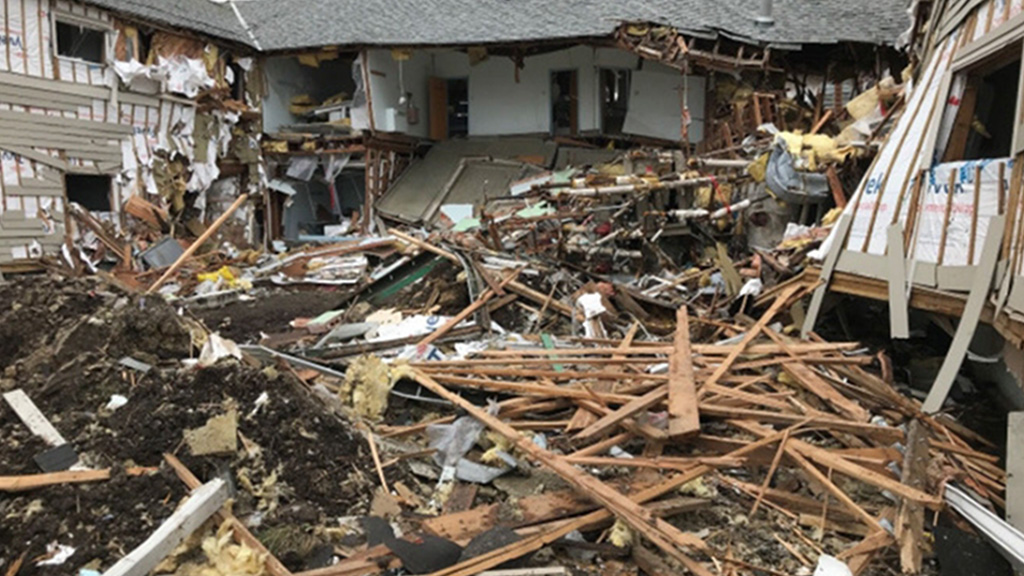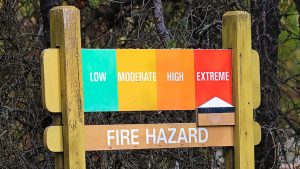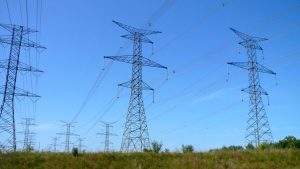The ongoing climate crisis has increasingly become a source of technical danger for British Columbians, joining careless gas line digging and unlicensed trade workers as the preeminent safety threats this year.
These three issues were highlighted by Technical Safety British Columbia (TSBC) in its Annual State of Safety 2022 report.
While the dangers associated with climate change have been prominent for several years, TSBC’s president and lead executive officer Phil Gothe says the risks have been accelerating.
“Why is it increasing? Well, one is that the effects of climate change do seem to be growing more severe,” Gothe said.
He has been with TSBC for 14 years and became executive officer in 2021. He said he can recount first-hand how the climate crisis has worsened since he started in 2009.
“It used to be novel in the spring or summer to have floods and wildfires. Now it is novel if we have a spring or summer where there are no floods or wildfires. We’re seeing more and more abnormal heat events, wind events, increasing humidity and historic rains,” he said.
There have also been increasingly severe cold snaps in the winter that, being out of place for the province, create unique safety hazards.
One way a changing climate creates technical danger is its effect on regulated technical equipment.
“We’re finding things like the humidity causing electrical malfunctions, and we investigated an incident where extreme cold resulted in ice buildup around gas venting.
“This is the venting of carbon monoxide or particulates of combustion. If that vent is blocked then it feeds back into the built environment and becomes a hazard for carbon monoxide poisoning.”
Gothe recalled other incidents involving wildfire smoke leading to incomplete combustion in engines and extreme heat causing propone tank relief valves to erupt.
But climate change isn’t only a danger through its direct impacts. It also creates very real hazards in how it interferes with human decision-making.
As the climate changes rapidly, a lot of the general safety and techniques people were taught growing up or in school become irrelevant. Faced with new situations and without the proper knowledge of how to approach climate change safely, people make mistakes.
“We had an incident last year where an individual brought propane heating devices into their home during an abnormal period of extended cold. This created two hazards: one is carbon monoxide poisoning by bringing outdoor, propane powered heating into the home without proper ventilation,” Gothe said.
“But in this case they were changing propane tanks and there was a propane leak and gas accumulated in the built environment. There was an explosion when it hit an ignition source and there are plenty of ignition sources in a home or cabin.”
TSBC investigated seven gas related explosions in the province last year and 10 instances of carbon monoxide poisoning.
Another example of climate change creating a hazard is through the proliferation of electric vehicles. Gothe said people are rewiring their homes to install EV charging stations and creating hazards by not hiring licensed electricians to do the work.
And the issue of unlicensed workers performing gas and electrical work has been an increasing risk. Both trades require Red Seal certification in B.C. with TSBC offering a further level of certification beyond the Red Seal.
Gothe said this issue has become more prominent as the average citizen sources local, unlicensed DIY-type handymen to get jobs done to save money.
“If you are going to do gas or electrical work in British Columbia you should hire a licensed contractor who will have a properly certified individual do the work,” he said.
“I’m not against the ‘do it yourself’ ethos, but for certain types of dangerous work it’s better to hire a licensed worker than save some money on your job.”
TSBC has a directory of licensed contractors available on its website.
Gas isn’t only a danger in relation to climate change. Gothe said the TSBC has found increasing incidents of carelessness when working around buried gas lines and urges increased caution from the construction industry.
“I think it’s important that folks realize that precautions need to be taken before digging, during digging and once a gas line is exposed.”
Gothe said crews sometimes rely too heavily on previous mapping around where it’s safe to dig and become overly comfortable with the serious risk of striking a gas line. He said one of the biggest dangers is the belief that if a gas line vents into the open air it is not a serious hazard.
“We had two quite severe incidents where the lines were hit, the gas did leak and made its way into a nearby structure and in both cases this caused a catastrophic explosion.
“In both cases the contractors and excavators did everything they were supposed to do before digging, but then they began digging a little too casually.”
Gothe said in post-incident investigations done by the TSBC, “there was a sense that they didn’t think this was a big hazard anymore.
“We need to take all the necessary precautions before, during and after the gas line is exposed.”
The organization investigated 24 reports of gas leaks, opened seven investigations and stated 31 people suffered injuries in 2022 due to damaged gas lines.











Recent Comments
comments for this post are closed